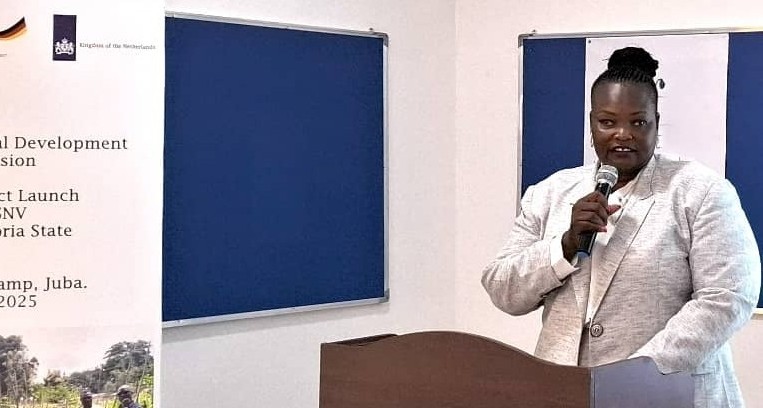
More than 27,000 households across South Sudan will receive new international support after Germany, the Netherlands and the European Union expanded a €48 million rural development initiative to Central Equatoria State.
The Community Driven Rural Development (CDRD) Project is designed to improve food security, strengthen market access and empower women and youth in rural communities.
It will benefit families in Western Bahr el Ghazal, Western Equatoria, Central Equatoria and Eastern Equatoria, with the latest extension covering Juba County.
At the launch ceremony in Juba, State Minister of Agriculture, Environment and Forestry, Lily Kapuki, said the programme offers a timely boost for families facing hunger and poverty.
“For smallholder households, food and nutrition security is critical. This project will support families not only to produce more, but also to access markets and build resilience,” she said.
The initiative forms part of the EU’s Green and Resilient Economy Programme, which supports rural livelihoods while addressing climate change.
It will complement the GRACE Project, implemented with the help of FAO, WFP and ITC.
According to Vittoria Longato, Food Security and Rural Development Manager at the EU Delegation, the approach reflects “Team Europe” cooperation.
“Our shared goal is to support the people of South Sudan in building a sustainable, inclusive and climate-resilient economy,” she noted.
Implemented by GIZ in partnership with the Netherlands Development Organisation (SNV) and other partners, the project will focus on improving agricultural value chains, promoting natural resource management and ensuring that lessons from the field influence national policy.
The expansion comes at a time when communities in Central Equatoria are grappling with the combined pressures of climate change, conflict and economic hardship.
Backers of the project hope the investment will lay stronger foundations for a more resilient rural economy in South Sudan.

